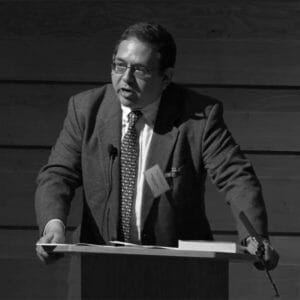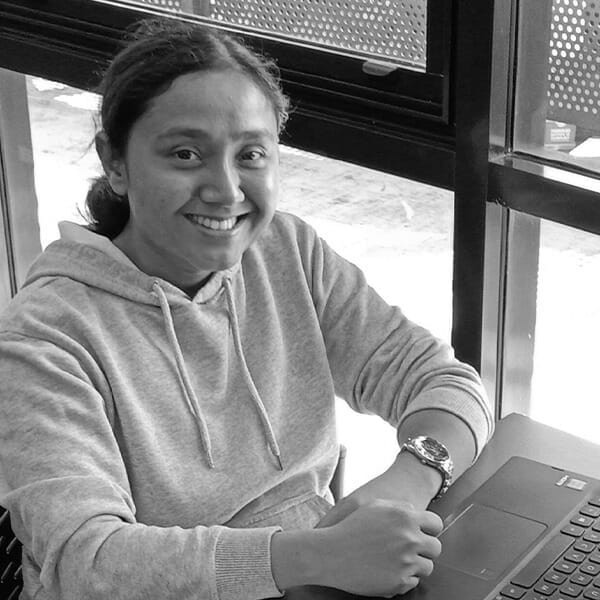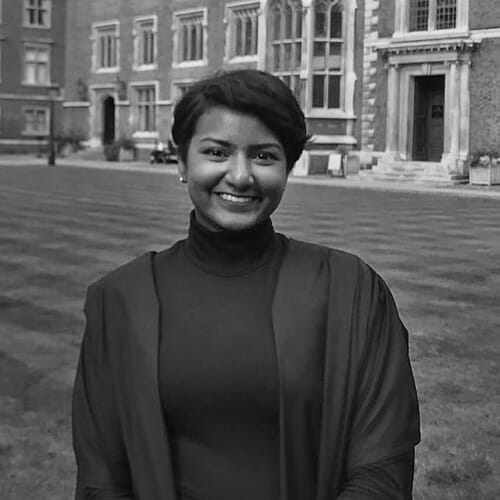“In the application of peoples’ sovereignty, the FORSEA Board Members believe in democracy, either as representative or participatory form of government as the best vehicle for fair and equitable exercise of power among peoples.” — From the Peoples’ Charter for Southeast Asia, 2018
FORSEA – or Forces of Renewal for Southeast Asia – We are Southeast Asian democrats and rights campaigners committed to making our region fair, just and democratic.
As members of the Managing Board of FORSEA, we are committed to pursuing, through our educational initiatives, the advancement of human welfare, the protection of vulnerable national minorities, the propagation of fundamental human rights, labour rights, gender equality, the fostering of harmony between faith-based communities, the spread of ecological consciousness, and the promotion of a democratic ethos among future generations across Southeast Asia.
FORSEA Board Members
Michael Charney
 A native of Flint, Michigan, Michael Charney is a full professor at SOAS, the University of London, in the Centre for International Studies and Diplomacy (School of Interdisciplinary Studies) and the School of History, Religions, and Philosophies, where he teaches global security, strategic studies, and Asian military history. Since 1 November 2022, he has assumed the directorship of the Center of Southeast Asian Studies. He received his PhD from the University of Michigan in 1999 on the subject of the history of the emergence of religious communalism in Rakhine and has published a number of books on military history in Southeast Asia and the political and intellectual history of Myanmar. He was a postdoctoral research fellow at the Centre for Advanced Studies at the (National University of Singapore) where he researched religion and migration, was a project professor at the Institute for Advanced Studies of Asia at the University of Tokyo, and has spent most of the last two decades at SOAS, where he was elected to the Board of Trustees in 2016. He is a regular commentator in the media on events in Myanmar.
A native of Flint, Michigan, Michael Charney is a full professor at SOAS, the University of London, in the Centre for International Studies and Diplomacy (School of Interdisciplinary Studies) and the School of History, Religions, and Philosophies, where he teaches global security, strategic studies, and Asian military history. Since 1 November 2022, he has assumed the directorship of the Center of Southeast Asian Studies. He received his PhD from the University of Michigan in 1999 on the subject of the history of the emergence of religious communalism in Rakhine and has published a number of books on military history in Southeast Asia and the political and intellectual history of Myanmar. He was a postdoctoral research fellow at the Centre for Advanced Studies at the (National University of Singapore) where he researched religion and migration, was a project professor at the Institute for Advanced Studies of Asia at the University of Tokyo, and has spent most of the last two decades at SOAS, where he was elected to the Board of Trustees in 2016. He is a regular commentator in the media on events in Myanmar.
Charney has been an advocate for both meaningful democratic reforms in Myanmar as well as religious and ethnic tolerance. He has participated in a number of events and debriefing sessions since the events of August 2017 to speak on the historical presence of the Rohingya within Myanmar, the legitimacy of their ethnic claims, and the validity of claims of genocide. Charney is an outspoken critic of the use and abuse of history by authoritarian states, the Tatmadaw’s abuse of ethnic minorities, the National League for Democracy’s and former icon Aung San Suu Kyi’s failures in promoting civil liberties, and the so-called transition to Democracy in Myanmar.
Hafsar Tameesuddin
 Hafsar Tameesuddin is a former Rohingya refugee from Myanmar. Hafsar has been involved in different advocacy and activism spaces on statelessness, refugee rights, asylum seekers, detention of migrants and refugees, and prevention and response to sexual and gender-based violence (SGBV) for over a decade. She had worked with refugee communities on the prevention and response to SGBV (Sexual Gender-Based Violence) and child marriage in Malaysia for 8 years. She now works as a community development navigator at Change Makers Resettlement Forum. In her volunteer capacity, she is the chair of Asia Pacific Refugee Rights Network (APRRN), a Steering Committee Member of Asia Pacific Network of Refugees (APNOR), a member of Global Refugee-Led Network (GRN), the New Zealand Country Coordinator of Free Rohingya Coalition (FRC), and an Advisory member of UNHCR Advisory Group, interim working group member of the Global Movement of Statelessness and steering committee member of Rainbow Path New Zealand.
Hafsar Tameesuddin is a former Rohingya refugee from Myanmar. Hafsar has been involved in different advocacy and activism spaces on statelessness, refugee rights, asylum seekers, detention of migrants and refugees, and prevention and response to sexual and gender-based violence (SGBV) for over a decade. She had worked with refugee communities on the prevention and response to SGBV (Sexual Gender-Based Violence) and child marriage in Malaysia for 8 years. She now works as a community development navigator at Change Makers Resettlement Forum. In her volunteer capacity, she is the chair of Asia Pacific Refugee Rights Network (APRRN), a Steering Committee Member of Asia Pacific Network of Refugees (APNOR), a member of Global Refugee-Led Network (GRN), the New Zealand Country Coordinator of Free Rohingya Coalition (FRC), and an Advisory member of UNHCR Advisory Group, interim working group member of the Global Movement of Statelessness and steering committee member of Rainbow Path New Zealand.
Netusha Naidu
 Netusha Naidu is the co-founder of Imagined Malaysia, a nonprofit education project that aims to broaden understanding of Southeast Asian – and specifically, Malaysian – history, by providing a platform to learn and critically discuss alternative historical narratives.
Netusha Naidu is the co-founder of Imagined Malaysia, a nonprofit education project that aims to broaden understanding of Southeast Asian – and specifically, Malaysian – history, by providing a platform to learn and critically discuss alternative historical narratives.
Imagined Malaysia has organized countless forums and dialogues, exhibitions, and published an annual journal to push historical discourse in Malaysia. Netusha hopes to participate in the effort of creating public awareness and education about the different narratives and stories that may be omitted from the official/master history. This is to not only change understanding of the nation’s history but to deepen and evolve it to have a more inclusive and rich discourse. The crucial point is to address some of the present concerns regarding historical literacy in Malaysia.
Netusha completed an undergraduate degree in International Relations in University of Nottingham Malaysia Campus. Upon graduating, her dissertation “‘Sly Civility’ and the Lazy Malay: The Discursive Economy of British Colonial Power during the Pahang Civil War, 1891-1895” will be published by Amsterdam University Press as a chapter in their forthcoming edited volume Racial Difference and the Colonial Wars of 19th Century Southeast Asia. During her studies, she was also the co-curator of Jalan Merdeka: Traversing the routes to independence, an exhibition held at the historic Carcosa Seri Negara in Kuala Lumpur.
Netusha was awarded the Tunku Abdul Rahman Fund in St Catharine’s College to pursue an MPhil in World History at the University of Cambridge. She recently completed a dissertation titled “In Search of Patani Raya: Malay Anticolonial Imaginaries at the Fringes of Empire, 1945-48”. Through research on the anticolonial right to self-determination in the borderlands of Southeast Asia, Netusha is determined to work towards fostering transnational solidarities for an international order characterized by decolonization and nondomination.
Toru Kubota.
 Toru Kubota, born in 1996, is a documentary filmmaker. While he was a bachelor student in political science, he documented the situation of the Rohingya internment camps located in western Myanmar and created “Light up Rohingya” (2016), which solidified his decision to use his camera to give voice to the voiceless. Later, he collaborated with media companies such as the BBC, NHK World, and Al Jazeera. During the COVID-19 pandemic in Tokyo, he earned acclaim for co-directing the NHK program “Tokyo Ritornello (2020)” which shed light on the often overlooked and marginalized immigrant communities facing hardship in Japan.
Toru Kubota, born in 1996, is a documentary filmmaker. While he was a bachelor student in political science, he documented the situation of the Rohingya internment camps located in western Myanmar and created “Light up Rohingya” (2016), which solidified his decision to use his camera to give voice to the voiceless. Later, he collaborated with media companies such as the BBC, NHK World, and Al Jazeera. During the COVID-19 pandemic in Tokyo, he earned acclaim for co-directing the NHK program “Tokyo Ritornello (2020)” which shed light on the often overlooked and marginalized immigrant communities facing hardship in Japan.
In July 2022, after the military coup in Myanmar, he went to Yangon, the city ruled by the Myanmar military junta. While filming the anti-military protests in Yangon, he was arrested by the junta and sentenced to 10 years imprisonment; however, he was released after 111 days. After he returned to Japan, he co-founded the Docu Athan project with Yuki Kitazumi, an initiative dedicated to supporting journalists in Myanmar.
https://www.torukubota.com/
Arash Sedighi
 Dr. Arash Sedighi obtained his doctorate in Politics and International Studies from the School of Oriental and African Studies. He also completed his MA History at SOAS, writing his Masters thesis on scientific literature in Colonial Burma in the 18th and 19th century. Arash has worked as a Teaching Fellow at the Centre of International Studies and Diplomacy, and at the University of Westminster. He has written and produced two short movies, produced and hosted the podcast “Mansplaining Feminism” [ https://www.listennotes.com/fil/podcasts/mansplaining-feminism-arash-and-billy-VE3nbNDAh2C/ ] about the history of feminism and spends his free time in the Lake District.
Dr. Arash Sedighi obtained his doctorate in Politics and International Studies from the School of Oriental and African Studies. He also completed his MA History at SOAS, writing his Masters thesis on scientific literature in Colonial Burma in the 18th and 19th century. Arash has worked as a Teaching Fellow at the Centre of International Studies and Diplomacy, and at the University of Westminster. He has written and produced two short movies, produced and hosted the podcast “Mansplaining Feminism” [ https://www.listennotes.com/fil/podcasts/mansplaining-feminism-arash-and-billy-VE3nbNDAh2C/ ] about the history of feminism and spends his free time in the Lake District.
Maung Zarni (aka Zarni)
 Exiled in UK, Maung (or Mr) ZARNI is a leading scholar of Rohingya genocide and a well-known peace and rights activists. He is a non-resident fellow with the (Genocide) Documentation Center – Cambodia, co-founder of FORSEA.co, a progressive activist and intellectual platform for Southeast Asian activists and scholars of the region, and Burmese coordinator of the Free Rohingya Coalition. In the 1990’s, Zarni was a pioneer in using the then emerging InfoTech for building an international human rights movement, known as the Free Burma Coalition, in support of his country Burma’s struggle against the military dictatorship. Zarni earned a BSc in chemistry from the University of Mandalay (1985), an MA in education from the University of California at Davis (1991) and a PhD in curriculum and instruction from the University of Wisconsin at Madison (1998). He has taught and/or held research fellowships in universities in USA, UK, Thailand, Malaysia, and Brunei. For his 3-decades of activism and scholarship devoted to peace and human rights both in his country of birth and beyond, he has been nominated for 2024 Nobel Peace Prize by N. Irish Peace Laureate Mairead Maguire. Zarni blogs at www.maungzarni.net .
Exiled in UK, Maung (or Mr) ZARNI is a leading scholar of Rohingya genocide and a well-known peace and rights activists. He is a non-resident fellow with the (Genocide) Documentation Center – Cambodia, co-founder of FORSEA.co, a progressive activist and intellectual platform for Southeast Asian activists and scholars of the region, and Burmese coordinator of the Free Rohingya Coalition. In the 1990’s, Zarni was a pioneer in using the then emerging InfoTech for building an international human rights movement, known as the Free Burma Coalition, in support of his country Burma’s struggle against the military dictatorship. Zarni earned a BSc in chemistry from the University of Mandalay (1985), an MA in education from the University of California at Davis (1991) and a PhD in curriculum and instruction from the University of Wisconsin at Madison (1998). He has taught and/or held research fellowships in universities in USA, UK, Thailand, Malaysia, and Brunei. For his 3-decades of activism and scholarship devoted to peace and human rights both in his country of birth and beyond, he has been nominated for 2024 Nobel Peace Prize by N. Irish Peace Laureate Mairead Maguire. Zarni blogs at www.maungzarni.net .

